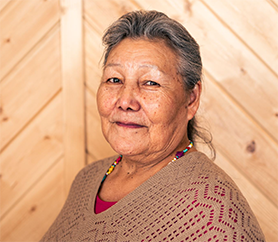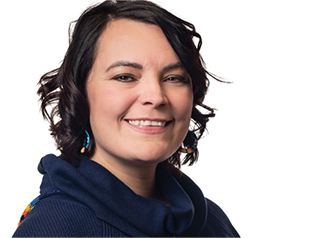“Ground penetrating radar is looking for locations of graves, not trying to prove that there are graves. We already know that.”
Step 1
By listening to the stories and information shared by our survivors, we are building up a picture of where to look for the children. This is a crucial part of the process which takes time, energy and resilience. We thank our survivors for their strength.
Step 2
Only with the community’s permission will we proceed with the truth scanning process. The agreed plan will include areas to search and methods of searching (ground penetrating radar, drone scanning and dog teams).
Step 3
Our team will prioritize the areas to be searched and begin looking for anomalies beneath the surface. This will take time. Ground penetrating radar is a slow process, and we will be attempting to cover many acres of challenging land.
Step 4
Data from ground penetrating radar must be interpreted by experts using advanced technologies. Interpreting this data will take time.
Step 5
We anticipate the scanning process will take several phases as we work through our prioritized list of searchable areas. We will take as much time as we need to search all areas of interest to ensure the community gets the answers it deserves.
Step 6
Our findings will be shared with the community before anybody else. This is your information; these are your missing children.
Healing Fort Chip is led by the Holy Angels Indian Residential School Truth Scanning Task Force, which consists of equal representation from the Athabasca Chipewyan First Nation, Mikisew Cree First Nation and Fort Chipewyan Métis Nation. Together, they’ve constructed a process to help guide the truth scanning process and assist in developing a plan of healing for the Fort Chipewyan community.

Holy Angels Survivor
Alice was born on the land in the Fort Chipewyan area. As a second-generation Holy Angels survivor, she is passionate about traditional knowledge, teaching the younger generation about living as people of the land and helping the community to heal.

Holy Angels Survivor
Michelle is the Chief of Operations for the Athabasca Chipewyan First Nation and understands the importance of community and healing together. Her background growing up in Fort Chipewyan and her education makes her an integral part of the Task Force.

As the Executive Director of the Fort Chipewyan Métis Nation, Tammy has helped to build and actualize the plans and dreams the community has for their home, traditional lands and families. With decades of experience in education, 15 of which in Principal role, Tammy has exceptional leadership and management skills.

Under the guidance of the Task Force, our Action Force is comprised of trusted advisors tasked with planning and managing the scanning process and guiding our community on mental health and healing during this difficult time.
Dr. Kisha Supernant is the Director of the Institute of Prairie and Indigenous Archaeology and a Professor in the Department of Anthropology at the University of Alberta. She has been at the forefront of truth scanning projects across the country and is an expert on the use of ground penetrating radar, drones and dog teams in searching for evidence of burial sites.
Dr. Supernant attended our information gatherings in both March and August.
Terry Garchinski is the founder and president of Life Works counselling and training services. He is a therapeutic counsellor and trauma specialist who has decades of experience working with Indigenous communities across Canada. He facilitates workshops and programs for community healing.
Terry attended our information gathering in August, leading the community in sharing circles and therapeutic practices.

Athabasca Chipewyan First Nation
“As a residential school survivor myself, I understand the pain.”
“As a residential school survivor myself, I understand the pain which lives within our community. Decades of trauma, often ignored and untreated, has and continues to tear individuals and families apart. This project marks a turning point in that cycle. We will uncover and face the truth together, we will demand acknowledgment and dignity for our children and we will move forward and heal as a community.”


Former Chief, Mikisew Cree First Nation
“Now is the time to come together, to hold each other up.”
“Now is the time to come together, to hold each other up. Our survivors need us, they need their families and friends and they need their community. We all have a role to play in this process. Check in on those you know who might be vulnerable right now. Be kind, listen and do what you can to help.”


President, Fort Chipewyan Métis
“We will emerge from this process stronger, I am certain of that.”
“We will emerge from this process stronger, I am certain of that. We will come through it more connected to our Elders and our families and with renewed bonds between our Nations. We will be better able to process the past and that will make us more ready for the future. This project will be the hardest thing we have ever faced as a community but I believe the strength we will gain from it will carry us forward to better days.”
“You are the boss of your own healing.”
If you, or someone you know, has been affected by trauma as a result of Canada’s residential schools, please know that you are seen and supported. The 24-hour National Indian Residential School Crisis Line provides support to former residential school students.
Individuals can call 1.866.925.4419 to access emotional and crisis referral services. For local support, contact Nunee Health at 780.697.3900.